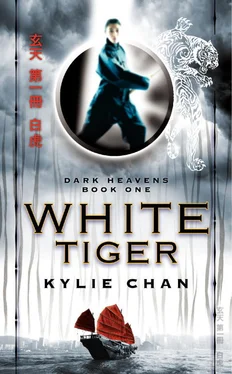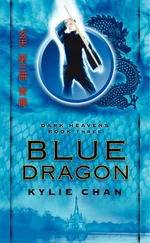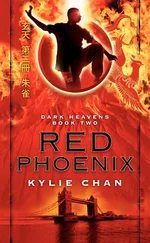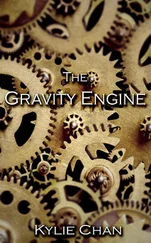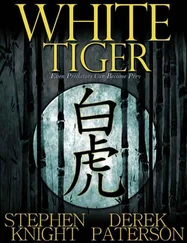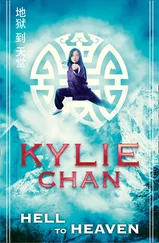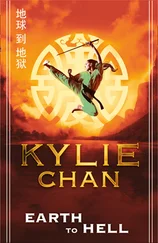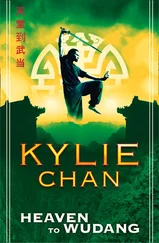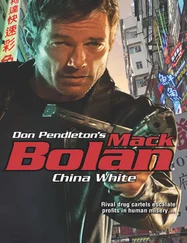Kylie Chan - White Tiger
Здесь есть возможность читать онлайн «Kylie Chan - White Tiger» — ознакомительный отрывок электронной книги совершенно бесплатно, а после прочтения отрывка купить полную версию. В некоторых случаях можно слушать аудио, скачать через торрент в формате fb2 и присутствует краткое содержание. Город: Sydney, Год выпуска: 2010, ISBN: 2010, Издательство: Voyager, Жанр: sf_fantasy_city, на английском языке. Описание произведения, (предисловие) а так же отзывы посетителей доступны на портале библиотеки ЛибКат.
- Название:White Tiger
- Автор:
- Издательство:Voyager
- Жанр:
- Год:2010
- Город:Sydney
- ISBN:978-0-7322-8296-7
- Рейтинг книги:4 / 5. Голосов: 1
-
Избранное:Добавить в избранное
- Отзывы:
-
Ваша оценка:
- 80
- 1
- 2
- 3
- 4
- 5
White Tiger: краткое содержание, описание и аннотация
Предлагаем к чтению аннотацию, описание, краткое содержание или предисловие (зависит от того, что написал сам автор книги «White Tiger»). Если вы не нашли необходимую информацию о книге — напишите в комментариях, мы постараемся отыскать её.
White Tiger — читать онлайн ознакомительный отрывок
Ниже представлен текст книги, разбитый по страницам. Система сохранения места последней прочитанной страницы, позволяет с удобством читать онлайн бесплатно книгу «White Tiger», без необходимости каждый раз заново искать на чём Вы остановились. Поставьте закладку, и сможете в любой момент перейти на страницу, на которой закончили чтение.
Интервал:
Закладка:
Jade Emperor: The supreme ruler of the Taoist Celestial Government.
Journey to the West: A classic of Chinese literature written during the Ming Dynasty by Wu Cheng’En. The story of the Monkey King’s journey to India with a Buddhist priest to collect scriptures and return them to China.
Kata(Japanese): A martial arts ‘set’; a series of moves to practise the use of the weapon or hand-to-hand skills.
KCR: A separate above-ground train network that connects with the MTR and travels to the border with Mainland China. Used to travel to towns in the New Territories.
Kitchen God: A domestic deity who watches over the activities of the family and reports annually to the Jade Emperor.
Koi(Japanese): Coloured ornamental carp.
Kowloon: Peninsula opposite the Harbour from Hong Kong Island, a densely packed area of highrise buildings. Actually on the Chinese Mainland, but separated by a strict border dividing Hong Kong from China.
Kowloon City: District in Kowloon just before the entrance to the Cross-Harbour Tunnel.
Kwan Yin: Buddhist icon; a woman who attained Nirvana and became a Buddha but returned to Earth to help others achieve Nirvana as well. Often represented as a goddess of Mercy.
Lai see(Cantonese): A red paper envelope used to give cash as a gift for birthdays and at New Year. It’s believed that for every dollar given ten will return during the year.
Lai see dao loy(Cantonese): ‘Lai see, please!’
Lantau Island: One of Hong Kong’s outlying islands, larger than Hong Kong Island but not as densely inhabited.
Li: Chinese unit of measure, approximately half a kilometre.
Lo Wu: The area of Hong Kong that contains the border crossing. Lo Wu is an area that covers both sides of the border; it is in both Hong Kong and China.
Lo Wu Shopping Centre: A large shopping centre directly across the Hong Kong/Chinese border on the Chinese side. A shopping destination for Hong Kong residents in search of a bargain.
Love hotel: Hotel with rooms that are rented by the hour by young people who live with their parents (and therefore have no privacy) or businessmen meeting their mistresses for sex.
M’goi sai(Cantonese): ‘Thank you very much.’
M’hai(Cantonese): Literally, ‘no need’, but it generally means ‘you’re welcome’.
Macau: One-time Portuguese colony to the west of Hong Kong in the Pearl River Delta, about an hour away by jet hydrofoil; now another Special Administrative Region of China. Macau’s port is not as deep and sheltered as Hong Kong’s so it has never been the busy trade port that Hong Kong is.
Mah jong: Chinese game played with tiles. The Chinese play it differently from the polite game played by many Westerners; it is played for money and can often be a cut-throat competition between skilled players, rather like poker.
manga: Japanese illustrated novel or comic book.
MTR: Fast, cheap, efficient and spotlessly clean subway train system in Hong Kong. Mostly standing room, and during rush hour so packed that it is often impossible to get onto a carriage.
New Territories: A large area of land between Kowloon and Mainland China that was granted to extend Hong Kong. Less crowded than Hong Kong and Kowloon, the New Territories are green and hilly with highrise New Towns scattered through them.
Nunchucks: Short wooden sticks held together with chains; a martial arts weapon.
Opium Wars: (1839–60) A series of clashes between the then British Empire and the Imperial Chinese Government over Britain’s right to trade opium to China. It led to a number of humiliating defeats and surrenders by China as they were massively outclassed by modern Western military technology.
Pa Kua(Cantonese): The Eight Symbols, a central part of Taoist mysticism. Four of these Eight Symbols flank the circle in the centre of the Korean flag.
Pak Tai: One of Xuan Wu’s many names; this one is used in Southern China.
Peak Tower: Tourist sightseeing spot at the top of the Peak Tram. Nestled between the two highest peaks on the Island and therefore not the highest point in Hong Kong, but providing a good view for tourist photographs.
Peak Tram: Tram that has been running for many years between Central and the Peak. Now mostly a tourist attraction because of the steepness of the ride and the view.
Peak, the: Prestigious residential area of Hong Kong, on top of the highest point of the centre of Hong Kong Island. The view over the Harbour and highrises is spectacular, and the property prices there are some of the highest in the world.
Pokfulam: Area of Hong Kong west of the main business districts, facing the open ocean rather than the harbour. Contains large residential apartment blocks and a very large hillside cemetery.
Putonghua: Also called Mandarin, the dialect of Chinese spoken throughout China as a standard language. Individual provinces have their own dialects but Putonghua is spoken as a common tongue.
Qing Long(Putonghua): (pronounced, roughly, Ching Long): The Azure Dragon of the East.
Ramen(Japanese): Instant two-minute noodles.
Repulse Bay: A small swimming beach surrounded by an expensive residential enclave of high- and low-rise apartment blocks on the south side of Hong Kong Island.
Salute, Chinese: The left hand is closed into a fist and the right hand is wrapped around it. Then the two hands are held in front of the chest and sometimes shaken.
Sashimi(Japanese): Raw fish.
Sensei(Japanese): Master.
Sha Tin: A New Territories ‘New Town’, consisting of a large shopping centre surrounded by a massive number of highrise developments on the banks of the Shing Mun River.
Shaolin: Famous temple, monastery and school of martial arts, as well as a style of martial arts.
Shen: Shen has two meanings, in the same sense that the English word spirit has two meanings (‘ghost’ and ‘energy’). Shen can mean an Immortal being, something like a god in Chinese mythology. It is also the spirit that dwells within a person, the energy of their soul.
Shenzhen: The city at the border between Hong Kong and China, a ‘special economic zone’ where capitalism has been allowed to flourish. Most of the goods manufactured in China for export to the West are made in Shenzhen.
Sheung Wan: The western end of the Hong Kong Island MTR line; most people get off the train before reaching this station.
Shoji(Japanese): Screen of paper stretched over a wooden frame.
Shui(Cantonese): ‘Water’.
Shui gow : Chinese dumplings made of pork and prawn meat inside a dough wrapping, boiled in soup stock.
Shroff Office: A counter in a car park where you pay the parking fee before returning to your car.
Sifu(Cantonese): Master.
Siu mai: Dim sum served at yum cha; a steamed dumpling with a skin of wheat flour containing prawn and pork.
Sow mei(Cantonese): A type of Chinese tea, with a greenish colour and a light, fragrant flavour.
Star Ferry: Small oval green and white ferries that run a cheap service between Hong Kong Island and Kowloon.
Читать дальшеИнтервал:
Закладка:
Похожие книги на «White Tiger»
Представляем Вашему вниманию похожие книги на «White Tiger» списком для выбора. Мы отобрали схожую по названию и смыслу литературу в надежде предоставить читателям больше вариантов отыскать новые, интересные, ещё непрочитанные произведения.
Обсуждение, отзывы о книге «White Tiger» и просто собственные мнения читателей. Оставьте ваши комментарии, напишите, что Вы думаете о произведении, его смысле или главных героях. Укажите что конкретно понравилось, а что нет, и почему Вы так считаете.
